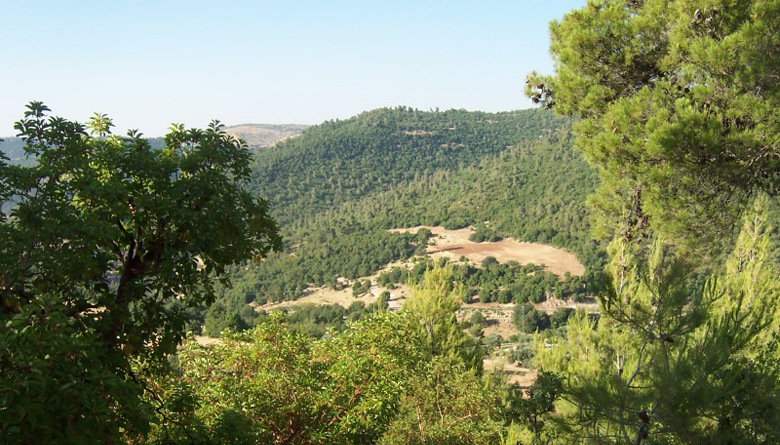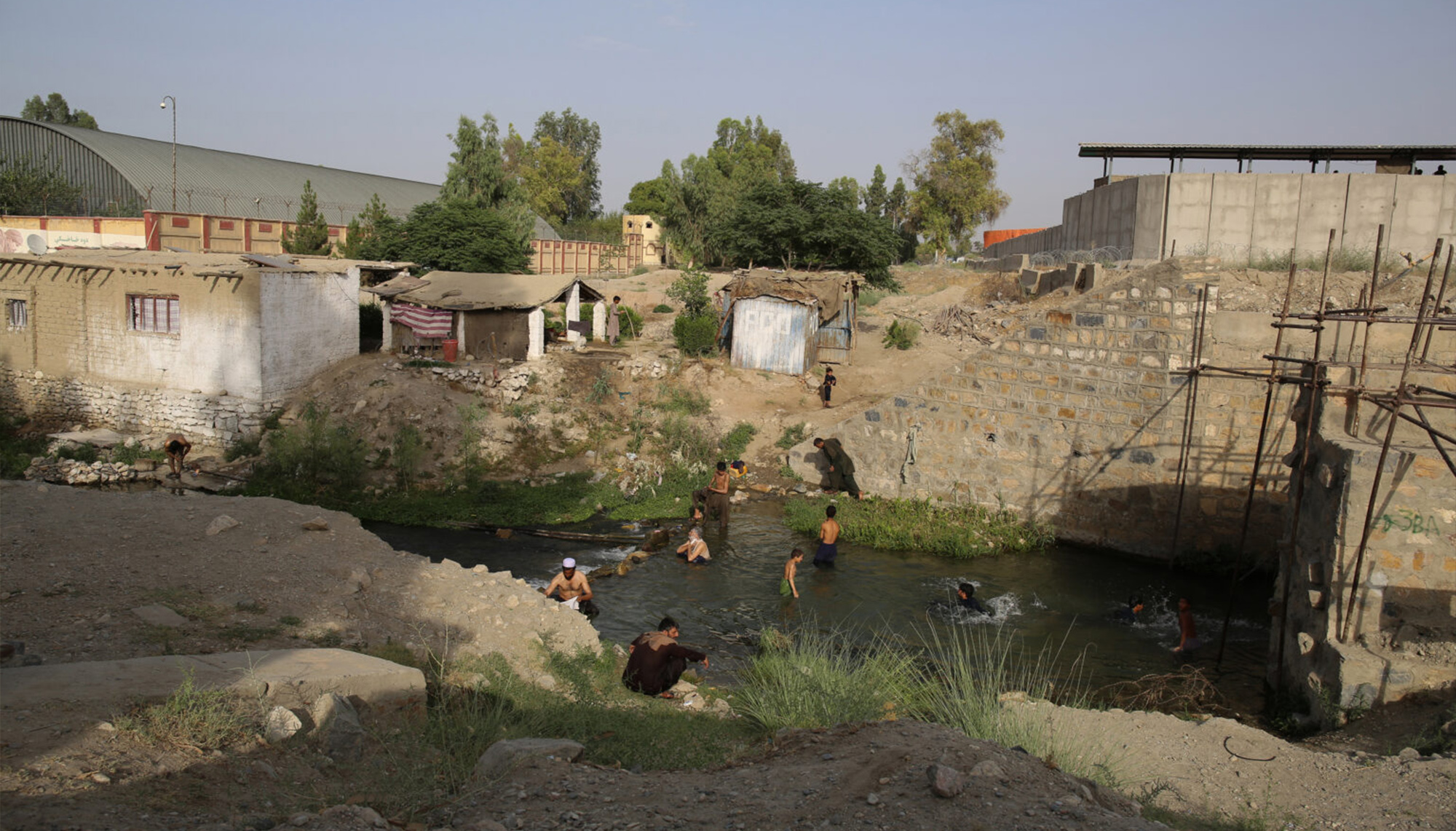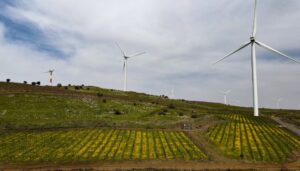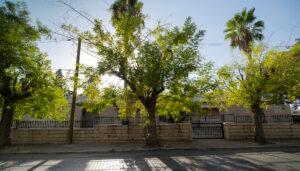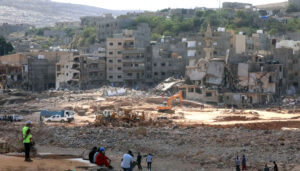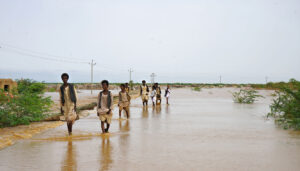من تحالف المنظمات غير الحكومية البيئية
لا يخفى على أحد أن غاباتنا صغيرة جداً من حيث المساحة حيث لا تتجاوز نسبتها 1% من مساحة المملكة، وهذه النسبة قليلة جدأً إذا علمنا بأن نسبتها لا تصل إلى النسبة المقبولة عالمياً والتي لا يمكننا أن نحققها إلا إذا استمرت وتيرة التحريج في التصاعد واستمر تفعيل القوانين الوطنية التي تحمي الحراج.
وتمتاز الغابات بشكل عام وغابات برقش في عجلون بشكل خاص بأنها تشكل نظاماً بيئياً متكاملاً وأصولا وراثية للعديد من النباتات الطبيعة المهمة، وهي جزء رئيسي من المساحة الكلية لغابات الأردن التي لا تزيد عن (1%) من المساحة الكلية للمملكة. ويعتبر التنوع النباتي والحيواني في المنطقة غنياً؛ حيث تصل كثافة الغطاء النباتي إلى (90%) وعدد الأنواع في غابات برقش يزيد عن (100) نوع نباتي منها (13%) نوع نادر و (4%) نوع مهدد و (13%) ذات أهمية طبية. هذا بالإضافة إلى وجود العديد من الأنواع الحيوانية كالثدييات والطيور المقيمة والمهاجرة. وتعد بعض الأنواع النباتية والحيوانية الموجودة في المنطقة مهددة إما على المستوى الوطني أو على المستوى العالمي وبالتالي بحاجه إلى حماية دائمة.
لقد علمنا مؤخرا أن هناك نية لإقامة مشروع بناء في منطقة برقش ضمن غابات عجلون على قطع حرجية ضمن حوض رقم (2) و (3) من أراضي قرية عرجان وبمساحة تقدر (981) دونم، حيث انه سوف يتم في المرحلة الاولى اقامة ابنية على مساحة (45) دونم من الاراضي الحرجيه، مما يتطلب ازالة أعداد كبيره من الأشجار الحرجية والنباتات المرافقة وهذا سيؤدي إلى تدمير كامل للنظام البيئي الموجود في تلك المنطقة، حيث تقدر أعداد الأشجار المنوي إزالتها (2200) شجره تصل أعمارها إلى خمسمائة سنة ومعظمها من أنواع السنديان والبطم والقيقب.
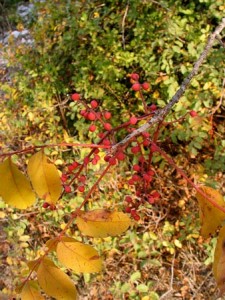 إن هذا إذا ما تم سيكون مخالفة صريحة لقانون الحراج الأردني الذي يعتبر من أقوى القوانين على مستوى المنطقة وربما يضاهي بعض القوانين في الدول الأوروبية فالمادة (28) من قانون الزراعة المتعلقة بالحراج تنص على:
إن هذا إذا ما تم سيكون مخالفة صريحة لقانون الحراج الأردني الذي يعتبر من أقوى القوانين على مستوى المنطقة وربما يضاهي بعض القوانين في الدول الأوروبية فالمادة (28) من قانون الزراعة المتعلقة بالحراج تنص على:
أ- ” لا يجوز تفويض الأراضي الحرجية إلى أي شخص أو جهة أو تخصيصها أو بيعها أو مبادلتها مهما كانت الأسباب “
ب- ” لا يجوز إدخال الأراضي الحرجية في حدود البلديات إلا بموافقة الوزير، كما لا يجوز تقسيم الأراضي الحرجية داخل حدود التنظيم أو تغيير صفة استعمالها”.
وفيه مخالفة للمادة (35) فرع (ب) من نفس القانون التي تنص على: ” يحظر قطع أي من الأشجار الحرجية المعمره أو النادره والنباتات البرية المهددة بالأنقراض أو إتلافها أو الإعتداء عليها بأي شكل من الأشكال”
كما أن فيه مخالفة لقانون حماية البيئة أيضاً والذي أحيل إلى مجلس الأمة وادخل عليه بعض التعديلات ليحل محل قانون رقم (25) لعام 2006 وبالتحديد المادة رقم (13) والتي تنص على:
أ- ” تلتزم كل مؤسسة أو شركة أو منشأة أو أي جهة يتم إنشائها بعد نفاذ أحكام القانون وتمارس نشاطها ويؤثر سلباً على البيئة بإعداد دراسة تقييم الأثر البيئي لمشاريعها ورفعها الى الوزارة لإتخاذ القرار المناسب بشأنها “.
ب- ” للوزير ان يطلب من أي مؤسسة أو شركة او منشأه أو جهه قبل نفاذ أحكام هذا القانون وتمارس نشاطاً يؤثر على البيئه اعداد دراسة تقييم الأثر البيئي لمشاريعها اذا استدعت ذلك متطلبات حماية البيئة “.
ومن منطلق فهمنا للأوضاع البيئية في بلدنا ومن فهمنا لما تمثله الغابات ـ التي عانت الأمرين ـ من أهمية بيئية واقتصادية فإننا نحذر من الأخطار البيئية التي ستنجم عن تدمير الغطاء النباتي والأنظمة البيئية بشكل عام، وندعو الحكومة إلى التشاور مع كافة الأطراف المعنية للوصول إلى صيغة يرضى عنها الجميع وبما يكفل مصلحة الوطن والمواطن، كما نأمل بتفعيل الرقابة على الحراج لنحافظ على ما تم إنجازه إلى الآن، وندعو الجهات المعنية إلى تكثيف الجهود الرامية إلى زيادة مساحة الغابات لا تدميرها من خلال خطة وطنية تشمل كافة الأطراف المعنية.
من جدير بالذكر أن الأمم المتحدة قد أعلنت العام الحالي 2011 عاماً للغابات وذلك ضمن حملتها من أجل نشر الوعي البيئي والعمل على إيجاد الإدارة المستدامة للغابات مما سينعكس إيجاباً على الأجيال الحالية والأجيال القادمة ومصلحة الوطن. فهل تكون أول مبادراتنا في عام الغابات هذا بأن نقوم بإزالة وتدمير غاباتنا؟
By the Coalition of Environmental NGOs
It’s no secret that Jordan has far less vegetation cover than most other countries. Barely 1% of the Kingdom is forested. Native tree planting must be accelerated, and the legislation protecting trees and the environment must be strictly enforced.
The Ajloun Forest in northern Jordan is virtually the last area in the country that still has an intact ecosystem with a rich natural diversity of native plant and animal species. Ninety percent of the area is lush with vegetation. A recent ecological survey in a small part of the Bergish area of Ajloun Forest, in January 2009, recorded over 100 plant species, of which 13% are rare, 4% are threatened and 13% have medicinal value. Without an extensive survey, there is no telling how many more important species are also present.
The Ajloun Forest is home to many indigenous animals and birds, including migratory birds, whose presence is essential to maintain balanced biodiversity. Some plants and animals found there are threatened at the national and/or global level and are thus in need of permanent protection.
It has recently come to our attention that a project will be built at Bergish, in the Ajloun Forest. This new construction will destroy a significant part of the Forest near the village of Orjan.
Buildings and facilities in the first phase of the project would cover an estimated 45 dunums of prime forest land and require the removal of 2,200 trees, mostly Oak, Pistachio, Hawthorn and Strawberry tree which support smaller plants such as Cyclamen and terrestrial orchids. Some of the native trees in Bergish are over 500 years old, and they should not be cut down.
In addition to conserving the biodiversity of flora and fauna, another key reason not to allow deforestation in Ajloun Forest relates to water. Trees help keep water in the soil, and this is very important in a country already lacking sufficient water resources. Jordan’s heritage and very future depend on fully conserving and protecting what remains of our natural environment.
If allowed to go ahead, this project will be in clear violation of the agricultural legislation of Jordan. In particular, Article 28 of the Jordanian agricultural law which relates to forestry land and mentions that it is not permissible to delegate, allocate, sell or trade forest land to any person or entity, for any reason. The law also mentions that forest land shall not be incorporated into municipal boundaries without the consent of the Minister, nor shall the segregation of forest land within the boundaries be allowed, nor changes to the status of forestry land use. The project would also be in violation of Article 35 of the same law, which mentions that it is prohibited to cut down, destroy or in any way, shape or form harm any forest trees, perennials, or rare and endangered wild plants.
Furthermore, the project is not in compliance with the Jordan Environmental Act No. 25 for the year 2006, Section 13, which states that all organizations, companies, firms or any other entity whose activities may adversely affect the environment in any way, shape or form must prepare an environmental impact assessment study for their project and submit it to the Ministry of Environment to take an appropriate decision thereon. It also states that the Minister must request from any institution, company or firm whose activities may affect the environment, a study assessing the environmental impact of their project.
We recognize that investment in such a project would create opportunities to increase per capita income, reduce unemployment and raise the Gross National Product. But at the same time, we are aware of what it represents to leave things without regulation or restriction, and to allow vague terms that do not protect the interests of Jordanians or promote the protection of the environment, which is one of the most important national priorities.
From our understanding of our country’s environmental conditions and our knowledge of the forest, which has already greatly suffered due to environmental and economic factors, we want to bring to everyone’s attention that environmental hazards will result from any further destruction of Jordan’s vegetation and ecosystems. And we call on the government to consult with all parties concerned in order to reach a formula satisfactory for all concerned and safeguard the interests of the country and the people. We hope more control of our forests will be activated – to maintain what has been accomplished to date – and call upon the authorities to intensify efforts to expand the area of forests under protection, and not allow a national plan to destroy any forest area.
The year 2011 was declared the International Year of Forests by the United Nations to “raise awareness and strengthen the sustainable management, conservation and sustainable development of all types of forests for the benefit of current and future generations.” So will Jordan’s first move this year be to destroy part of our best forest land?
Jordan cannot be perceived as the country that challenges this declaration by the United Nations.
